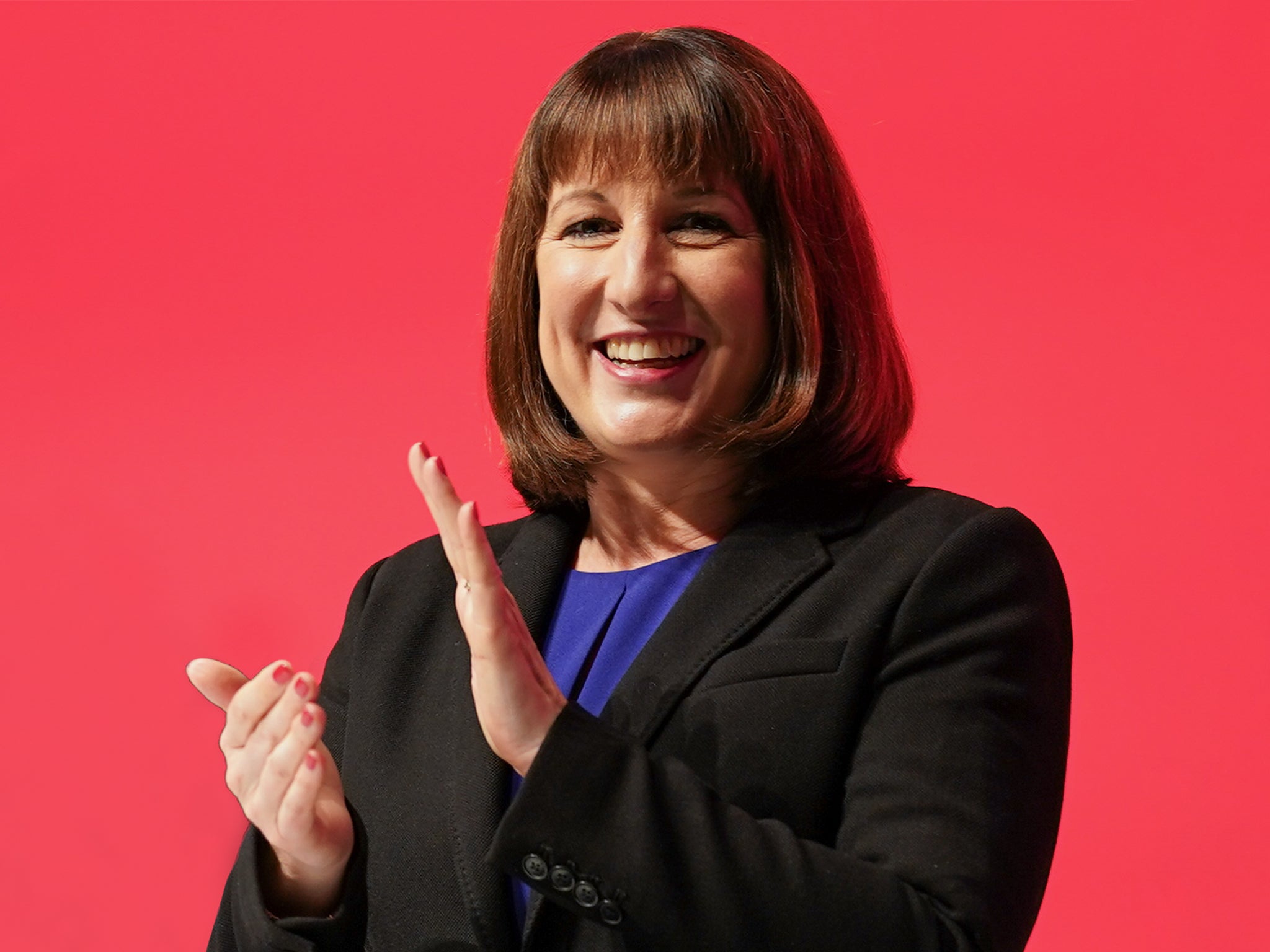Labour is now seen as the party of business – rightly so
Rachel Reeves is right to say Labour is the low-tax party most trusted on the economy, writes John Rentoul


Rachel Reeves, the shadow chancellor, admired The Independent’s front page today so much that she tweeted a picture of it with the comment: “The Labour Party is pro-worker and pro-business. The Tories are neither.”
This was a reasonable interpretation of our headline: “Hammer blow for Tories as former CBI chief declares: Labour is the party of business.” Her interpretation is backed by opinion polls finding that more people say Labour can be trusted on the economy, and that more people say that they would prefer her to manage the economy than Jeremy Hunt, the actual chancellor.
Paul Drechsler, the former CBI president whose article featured on our front page, reported a change in mood among business leaders. This is a matter not so much of hard policy as of soft attitudes. Labour doesn’t have much by way of solid policy on business (or on anything else). It has a breezy slogan about “abolishing” business rates, an unpopular tax, but it has a principle that all policies have to be paid for, so that money would have to be raised somehow.
More important is Labour’s overall fiscal stance. Drechsler reported that CEOs are impressed that Keir Starmer “wants to work in partnership with business to encourage economic growth, improve productivity and keep inflation on a tight rein”. The Labour Party has ditched big spending pledges funded by extra borrowing – with the exception of the Green Prosperity Plan, which I think will be finessed so that it is compatible with Hunt’s fiscal rules.
Business leaders do not seem to have a problem with Labour’s plans for a higher windfall tax on oil and gas companies; nor is there much resistance to its plans to abolish non-dom tax status and charge VAT on school fees.
More important is that Starmer and Reeves have “set about convincing business that they are encouraging entrepreneurs and enterprise (and, whisper it quietly: profit)”, as Drechsler put it. And “a lot of influential people in business” are persuaded. This is not just because business leaders think that Labour is going to win: it appears to be a genuine change in perception. Reeves’s background at the Bank of England before she was an MP seems to be immensely reassuring.
Drechsler said that Rishi Sunak is “patently a decent, trustworthy leader who appears to respect law and order and wants fiscal responsibility”, but that the Conservative Party is paying the price for the errors of his predecessors.
However, Reeves should heed Keir Starmer’s warning against complacency. Labour may be the party of business, but according to the Great British public, it is the party of everything except Ukraine. Most strikingly, it is the party of low taxes and the best party for managing immigration.
These ratings may not last. When voters say that Labour is the low tax party, they mean that the Tories are the high tax party; they want to register a protest against tax rises imposed by a Conservative government. But do they really think taxes would be lower under a Labour government than under an alternative Tory government in the future? I don’t think so.
Equally, when Labour is more trusted on immigration, that is a negative reaction to the government’s failure to stop the small boats crossing the Channel, rather than positive approval of Yvette Cooper’s alternative five-point plan.
There will come a point when the opinion polls will change from reflecting views of the government’s record to reflecting a choice between alternative governments in the future. That change will mean that Labour’s right to the title of “the party of business” will be contested.
But there is no doubt that Starmer and Reeves have done a remarkable job – ably assisted by Tory incompetence – in positioning the party as pro-business. It was only three years ago that Labour was led by someone who wanted to replace capitalism, and its leader before that seemed more interested in calling companies predators than producers.
Drechsler says: “Bosses have been crying out for steady partners who deliver a sound industrial strategy, and respect the rule of law.” For the first time since the last Labour government, Starmer and Reeves fit that bill.






Join our commenting forum
Join thought-provoking conversations, follow other Independent readers and see their replies
Comments